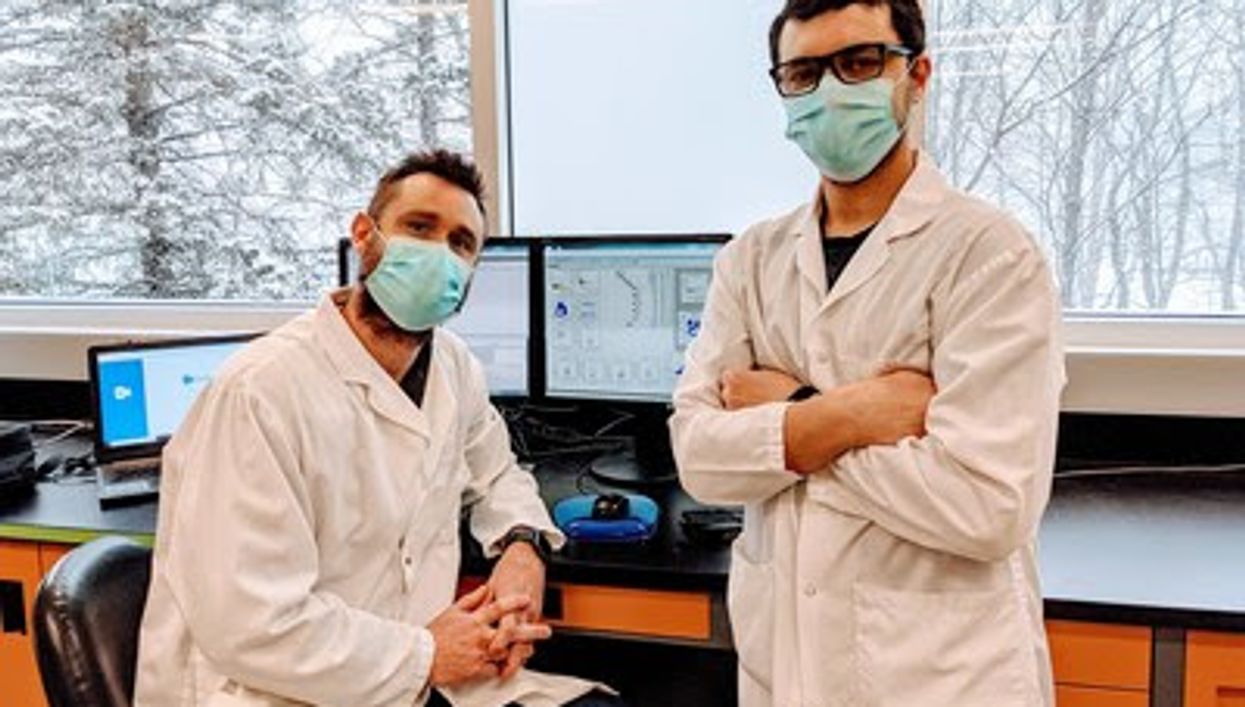Quebec Researchers Found A 'Breakthrough' That Could Help Treat People With HIV
From finding an oral drug to treat COVID-19 to discovering a new way to detect Alzheimer's disease, Quebec researchers have been making impressive strides lately.
Now, local scientists have achieved another "breakthrough" — this time, to help treat people living with HIV.
The study was prompted by "the need to improve... treatments for people infected with the human immunodeficiency virus (HIV-1)," according to a statement from the Institut national de la recherche scientifique (INRS).
Editor's Choice: Quebecers Don't Have Much Hope Life Will Get Back To Normal Anytime Soon, Poll Shows
“
A comparison can be made with... cancer, diabetes and even COVID-19 with lung inflammation.
Professor Julien van Grevenynghe
Essentially, what the INRS team has discovered is a therapeutic way to restore immune cells — a part of the immune system — so they become effective again.
The team took a closer look at a specific group of HIV-positive people called "Elite Controllers."
Elite Controllers are able to live with HIV without requiring any drug intervention — unlike the majority of people with HIV who take medication daily to control the virus.
The drugs can cause "significant" side effects.
"[Elite Controllers] represent an incredible model for detecting... what needs to be improved for other patients," said Professor Julien van Grevenynghe who led the study along with doctoral student Hamza Loucif.
It turns out that Elite Controllers have stronger energy output in certain immune cells called CD8 lymphocytes.
Those who need treatment have CD8 lymphocytes that aren't using energy efficiently, leading to weakened immune function.
"Cells require energy, produced in the mitochondria to protect the body and carry out their functions," said Professor van Grevenynghe.
This may all sound like complex scientific jargon, but the most important thing to know is that lack of energy in CD8 lymphocytes doesn't have to be permanent.
Using an existing protein called interleukin-21, these cells can be "re-educated" in order to improve their energy intake and therefore their immune function.
"We will one day be able to survive the infection without aggressive treatment," Professor van Grevenynghe said.
"The cells could also respond better to vaccination and treatment with better energy efficiency."
The research team wants to ultimately test their therapeutic approach in humanized mouse models and macaque monkeys, according to the statement.


